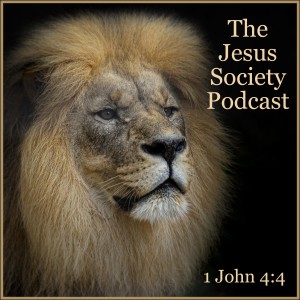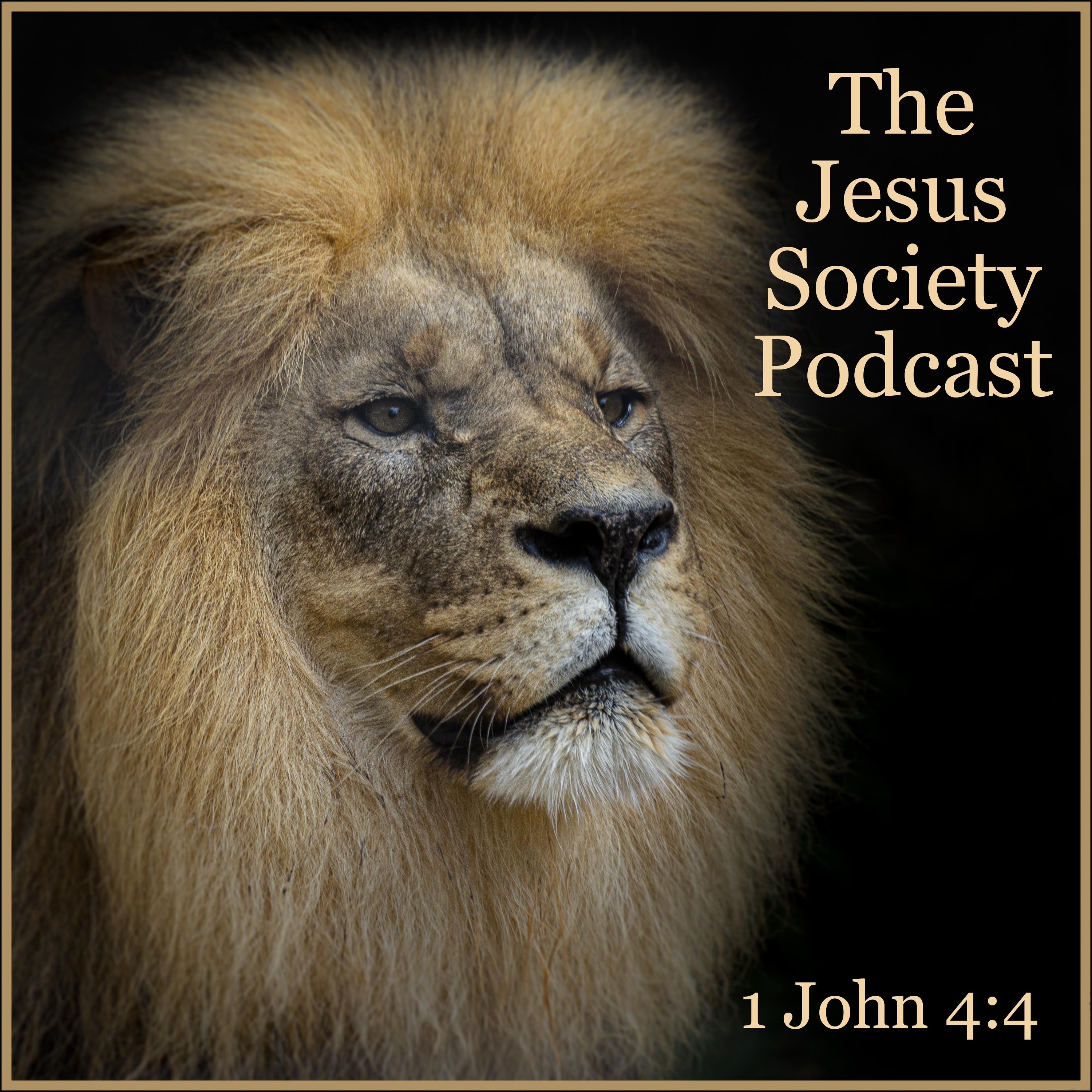Episodes

Monday Apr 27, 2020
The Story of the Bible - Part 8: Letting God Have His Way With Us
Monday Apr 27, 2020
Monday Apr 27, 2020
We;'ve been talking about how in the Kingdom of God that Jesus inaugurates in the New Testament, God is restoring Israel (and that includes all those who align themselves with and follow Israel’s new King Jesus). And she is now to be God’s representatives on earth, mediating God’s love and peace to the world around us, being a light to the nations and inviting people to taste and see that the Lord is good, and to live in fellowship with God and his people.
So this week, we start with a question, and that is: “What gives God any hope at all that his Kingdom people, who are called the church, will do any better job of living his kingdom vision and being a light to the nations than Israel did?”
One really good answer is that we have something Israel didn’t have — we have the Holy Spirit within us. So what does the Holy Spirit actually do within us that helps us become who God wants us to be in the world? If we’re going to be the agents of blessing and redemption in the world that God wants us to be — a kingdom of priests — the King’s ambassadors — we have to be different people than we are. Because we’ve all been twisted and broken, to greater or lesser degrees by the corruption and decay in the world around us. We’re all products of that.
And so first and foremost, we need to be transformed. And this isn’t really a secret in the Bible. For example, in Eph. 4:20-24, Paul says, “Now that you have come to know Christ . . . take off your former way of life, the old self that is corrupted by deceitful desires, and be renewed in the spirit of your minds, and put on the new self, the one created according to God’s likeness in righteousness and purity of the truth.”
He also says in Rom. 12:1-2 — “Therefore, brothers and sisters, in view of the mercies of God, I urge you to present your bodies as a living sacrifice, holy and pleasing to God; this is your true worship. Do not be conformed to this age, but be transformed by the renewing of your mind, so that you may discern what is the good, pleasing, and perfect will of God.”
So, how does the Spirit help us with all that? So back in Ezekiel 36:25-27, there’s an interesting passage. It’s one of those “restoration of Israel” passages that we’ve talked about. And it’s one of the earliest references to God placing his Spirit inside man. And it says this: “I will also sprinkle clean water on you, and you will be clean. I will cleanse you from all your impurities and all your idols. I will give you a new heart and put a new spirit within you; I will remove your heart of stone and give you a heart of flesh. I will place my Spirit within you and cause you to follow my statutes and carefully observe my ordinances."
So, according to God, the giving of his Spirit to us will causes us to keep the law. And the law, as we’ve come to understand, is summarized by Jesus as what? Loving God and loving neighbor. So the Spirit will help us to keep God’s law by helping us love God and love our neighbor more and better.
In the New Testament, Paul will say in Rom. 8:12-14, “So then, brothers and sisters, we are not obligated to the flesh to live according to the flesh, because if you live according to the flesh, you are going to die. But if by the Spirit you put to death the deeds of the body, you will live. For all those led by God’s Spirit are God’s sons.”
So the point of all this is that the Spirit Changes our Chooser. He changes our will. That’s what he wants to do within us — to move our hearts and wills into alignment with God’s. But here’s the thing — he doesn’t force that on us. We can resist the Spirit. 1 Thess. 5:19 will say, “Do not quench the Spirit.” In Acts 7:51, Stephen will say that the Jews “are always resisting the Holy Spirit . . . .” So if the Spirit is trying to change us from within, we need to orient our lives so as to cooperate with him. So how do we do that?
We do that by becoming abiders and cleavers. In one of my favorite passages in the gospel of John (John 15:1-11), Jesus uses the word “abide” 9 times. Some translations translate that by the word “remain.” I like “abide,” simply because I’m old and the word resonates with me. The point of the passage is the same — Jesus is telling us all to stay close to him. Dwell in him. Live in him. He is the source of life, and for his life to flow through us, we must remain connected. There is a very intimate life-connection being discussed in this passage. Kingdom living is first and foremost relational.
Also in that passage, Jesus talks about bearing fruit (the word “fruit” is used 6 times). Now, Jesus doesn’t define what kind of “fruit” he’s talking about here, but it MUST be related to his kingdom vision. So what could he be talking about in terms of fruit? He could be talking about the fruit of a changed life — “But the fruit of the Spirit is love, joy, peace, patience, kindness, goodness, faithfulness, gentleness, and self-control. The law is not against such things” (Gal. 5:22-23).
He could also be talking about the fruit of replication — inviting others into God’s kingdom as participants in his Kingdom vision. “All authority has been given to me in heaven and on earth. Go, therefore, and make disciples of all nations, baptizing them in the name of the Father and of the Son and of the Holy Spirit, teaching them to observe everything I have commanded you. And remember, I am with you always, to the end of the age,” he'll say in Matt. 28:18-20). So which one is it? I think both.
Also, I want us to see that this fruit is not produced by an act of will. See v. 4 (“Just as a branch is unable to produce fruit by itself unless it remains on the vine, neither can you unless you remain in me.”). In Scripture, God Himself produces fruit in us/through us. Paul makes that quite clear in 1 Cor. 3:6-7, where he says, “I planted, Apollos watered, but God gave the growth. So then neither the one who plants nor the one who waters is anything, but only God who gives the growth.” And notice — Jesus pictures fruit-bearing as a natural outgrowth of abiding in him (Jn. 15:5 — “The one who remains in me and I in him produces much fruit . . . “). So, our job is simply to abide. To stay connected to him. To lean in closer and closer to him. His job is to bear fruit through us. God will empower it. Said another way, our focus is intimacy. Because intimacy empowers ministry. We have one job, folks!
So if we’re going to create a culture of Christlikeness, we need to learn to abide. Said another way, we need to learn to “cleave to the Lord.” The word “cleave” is from the Hebrew word dabaq, and it’s found in lots of places in the Old Testament. It’s found, for instance, in the familiar passage in Genesis 2:24, where it says that “a man leaves his father and mother and is joined with (or “bonds with” or “clings to” or “cleaves to”) his wife, and they become one flesh.”
But one of the more interesting dimensions to this idea of “cleaving” is that it describes how underwear fits to the body. Betcha didn’t see that coming? But I kid you not. In Jeremiah 13:11, the Lord says, “Just as underwear clings to one’s waist, so I fastened the whole house of Israel and of Judah to me.” The point there is THAT is how closely the people are to cleave to the Lord, Jeremiah says. We are to cleave to the Lord, to be affixed to the Lord, to adhere to the Lord. To get connected to him, to learn from him, to rest in his love for us, to see how he operates.
So we will only be formed into Christlikeness to the extent that we cleave to the Lord. Because again, our job is intimacy. Cleaving. His job is to transform us. And again, transformation is not our work. It’s his work, that he does in us, as we cling to him. He transforms us as we develop greater connectedness to him. Again, we have one job!
And because you cannot give what you do not have, we can only encourage others to be formed into Christlikeness as we cleave to the Lord ourselves — as we listen to his words, as we commune with him in prayer, as we become focused on the Lord, and as we learn to follow the living God.
And to me, this highlights the importance of being discipled ourselves by spiritual fathers and mothers in the church. The foundation of all education is emulation, not information. The foundational ingredient in our spiritual development is to be connected to God so that we can know God, so that we can emulate God. The goal of education is emulation.
So everything from here on out in the Kingdom is about becoming better abiders. Better cleavers. Communing with Jesus at a deeper level so that he, through the Holy Spirit within us, can change us. Growing in both our understanding and our experience of his love for us. And letting our experience of his love transform the way we interact with him AND with the world around us.
Music Provided by Nathan Longwell Music


No comments yet. Be the first to say something!